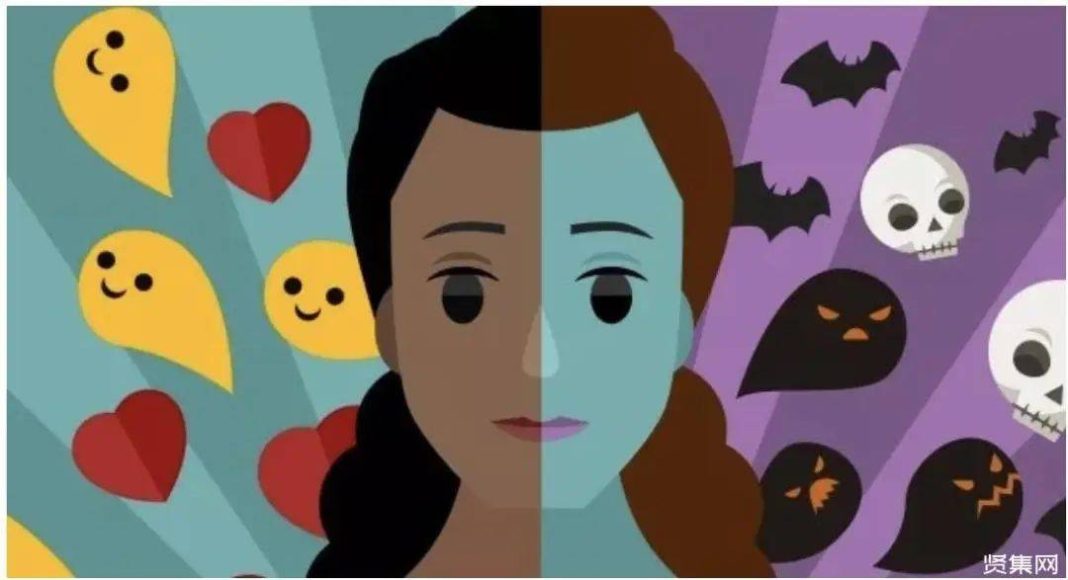3.30 is World Bipolar Disorder Day, bipolar disorder has always been called the “genius disease” because many historically famous geniuses have suffered from bipolar disorder, such as Beethoven, Da Vinci, Hemingway, and Van Gogh. What exactly is bipolar disorder?
What is bipolar disorder?
Bipolar disorder is a mental illness, also known as manic-depressive illness, characterized by alternating manic and depressive episodes.
Patients may feel extremely excited and energetic at certain times, and very sad, helpless, and lethargic at other times, but have normal emotions in between.
The highs and lows of mood can be seen as two extremes of emotional expression, hence the name “bipolar” disorder.
What are the symptoms of bipolar disorder?
Individuals with bipolar disorder go through manic and depressive periods, each period exhibiting distinct symptoms.
Manic period symptoms:
Excessive happiness, filled with hope and excitement;
Quick shifts from happiness to easily angered, hostile emotions;
Restlessness;
Rapid speech, lack of concentration;
Increased energy, reduced sleep;
Heightened libido;
Exaggerated and unrealistic planning;
Impaired judgment;
Substance abuse;
Easily impulsive.
Depressive period symptoms:
Sadness, incessant crying;
Lack of energy;
Feelings of despair or worthlessness;
Lack of interest in previously enjoyed activities;
Difficulty concentrating;
Irritability;
Insomnia or increased sleep;
Changes in appetite, leading to weight gain or loss;
Thoughts of death or suicide;
Attempted suicide.
It should be noted that the symptoms of bipolar disorder should only be used as reference and not as clinical diagnostic criteria. If you feel your condition is poor or suspect you have bipolar disorder, it is advisable to seek comprehensive medical evaluation promptly.
How is bipolar disorder treated?
Treatment for bipolar disorder varies depending on the phase the individual is currently experiencing.
During acute manic or mild manic episodes
In severe cases, emergency hospitalization is necessary to ensure the safety of the patient and others. Treatment includes medication to rapidly alleviate manic symptoms, with a focus on minimizing adverse drug reactions and promoting full recovery. If the patient is currently taking antidepressants, the doctor may advise discontinuation. For overstimulated manic patients, a quiet environment may be provided, with the possibility of intramuscular medication administration. In certain situations where the patient is uncooperative, medication may be administered against their will to ensure safety. In cases of treatment-resistant individuals, the doctor may consider optimizing dosages, patient compliance, or alternative treatment options.
During depressive episodes
Patients experiencing acute depressive episodes often exhibit negative thoughts and may even engage in self-harm or suicidal behaviors. Therefore, medication and improvement of electroconvulsive therapy are necessary to quickly alleviate or control symptoms. For severe depressive episodes, hospitalization is usually required to reduce the risk of suicide. In summary, treatment for bipolar disorder patients generally falls into three categories.
Medication therapy
Doctors follow the principles of safety, shared decision-making, comprehensive treatment, and combination drug therapy to provide medication therapy to patients. Medication therapy covers the acute, consolidation, and maintenance phases. Common medications include mood stabilizers, antipsychotic drugs, and antidepressants. Note: Antidepressants, when used to treat bipolar depression, may lead to adverse effects such as exacerbating mood instability and worsening patient symptoms. Therefore, doctors typically do not use antidepressants alone; when necessary, they combine them with mood stabilizers.
Psychotherapy
Throughout the course of manic and depressive episodes, patients may experience various psychological issues, making psychotherapy an essential measure. Physicians should offer comprehensive, ongoing psychological support and guidance to patients and their families. Psychotherapeutic approaches include psychoeducation interventions, cognitive-behavioral therapy, family therapy, and interpersonal and social harmony therapy.
Crisis intervention
When dealing with patients in the activated traumatization phase, it is essential to provide comfort, avoid arguments, and encourage social engagement as much as possible. If necessary, contact the patient’s mental health counselor or call the mental health crisis intervention hotline (National 24-hour Mental Health Crisis Hotline: 400-161-9995).
Final thoughts
If you suspect you have bipolar disorder, please visit the hospital for evaluation with the accompaniment of family or friends. Early detection leads to early treatment.
If you have already been diagnosed with bipolar disorder, do not be afraid. Cooperate actively with treatment and remember that mental illness is treatable.
If your friend or family member has been diagnosed with bipolar disorder, offer them sufficient understanding, patience, care, and support.
Formatting by / Liao Bowen
Reviewed by / Shu Guan
Image source from the internet, deletion upon request.


